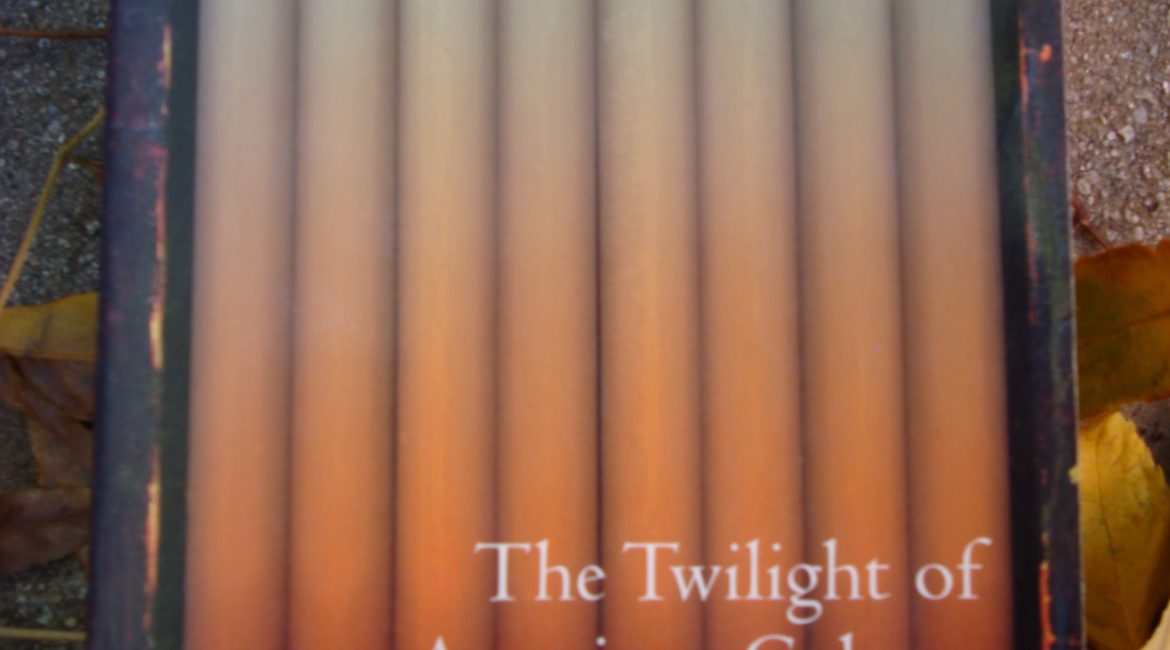With so many concerns about the direction our society is taking, and with so many concerns about the economy, foreign relations, and upcoming elections, it’s also worthwhile to consider how societies go into decline, fail, and even disappear in many cases. Yes, it’s correct that most of us don’t believe that could ever happen to us. But no one is ever immune to the larger forces that compel the flow of societies.
According to archaeologist Joseph Tainter, author of The Collapse of Complex Societies, there are eight definable reasons why civilizations fall.
- Resource Depletion
- New Resources
- Catastrophes
- Insufficient Response to Circumstances
- Other Complex Societies
- Intruders
- Mismanagement
- Economic Explanations
Examples of Tainter’s observations are found each day in the daily newspapers. Survival is not an academic, intellectual idea. This is the reason we have all endeavored to learn and to practice everyday survival skills.
DARK AGES AHEAD?
According to social critic Jane Jacobs, author of Dark Age Ahead, we are following the same cultural decline that occurred with the Roman Empire. She begins her book by telling us that dark ages are a lot more common than we may think, and she identifies many of the weak spots in our contemporary lifestyle.
Her list of weak areas includes: taxes, family, community, education, science, technology, the lack of self-policing, and moral/ethical insanity.
Jacobs believes that these weak areas are the foundation of all the other often-cited problems, such as the environment, crime, and the discrepancy between rich and poor.
Jacobs points out that modern families are “rigged to fail” due to rising housing prices, suburban sprawl (with a reduced sense of community), and the automobile. She believes the automobile is the chief destroyer not only of communities but of the idea of community.
The hopeful part is that Jacobs does not see dark ages as inevitable. For one thing, we all need to get involved and be a part of the solution. Jacobs points out that the millions of details of a complex, living culture are not transmitted via writing or pictorially, but by (1) living examples and (2) by word of mouth. Jacobs goes on to say that though “the end” may be near, there are things we can do. What are those actions?
We need to think.
We need to model solutions.
We need to teach, to lecture, and to write.
The stereotypical survivalist who hides out in a cave or cabin with his beans and shotgun is the antithesis of survival. He is not engaged in society in any meaningful way and is therefore not a part of any meaningful solution.
SOME “MUST READ” BOOKS
The Twilight of American Culture by Morris Berman. Berman details what is actually happening to us, and provides a solution on an individual level.
Language in Thought and Action by S. I. Hayakawa. This is the the book for “how to think.” If you’ve not read and studied it, get it today from a used book store.
The Art of Loving by Eric Fromme. In the classic book on the problems facing all of humanity, Fromme describes the science of love. This book teaches you “how to love.”
True Believer by Eric Hoffer. The quintessential book on mass movements and cults teaches you “how to believe.”
Democracy Is Self-Government by Harold W. Percival. A “must-read” if you are to grasp what’s wrong with modern politics. The author demonstrates that individual self-government is the only path to real democracy.
“How to Survive Anywhere,” by Christopher Nyerges. This covers many of the details of the skills that everyone should know.

Great review! Oftentimes it’s just doom and gloom with these sorts of topics, but this synopsis spoke to me. I don’t often hear these viewpoints, but it sounds rational, and like there could be real solutions.
Going to grab this one ASAP after reading your review.
Thank you.